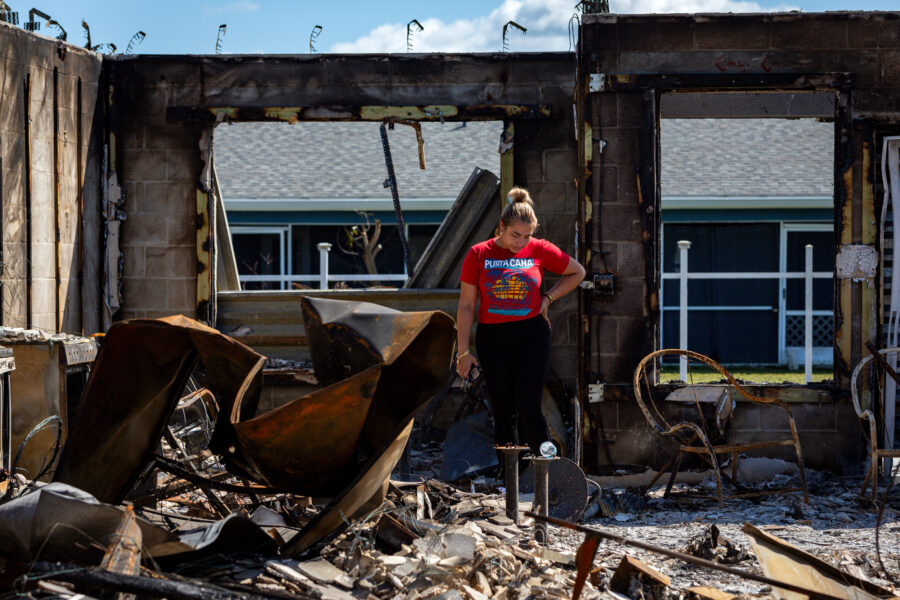The community of traveling families using the globe as their classroom is growing. Welcome to the "world school" revolution.
Amanda Dixon was teaching second grade at Kings Center Charter School in Buffalo, New York, while her husband Solomon, 38, was running writing workshops at middle schools around New York state.
The couple was working long hours to support their three young children, then 4, 2, and 1, when Amanda, 43, thought to herself, "I'm spending all day teaching other people's children and doing all the things that I wanted forever to do with my own children, with other people's children."
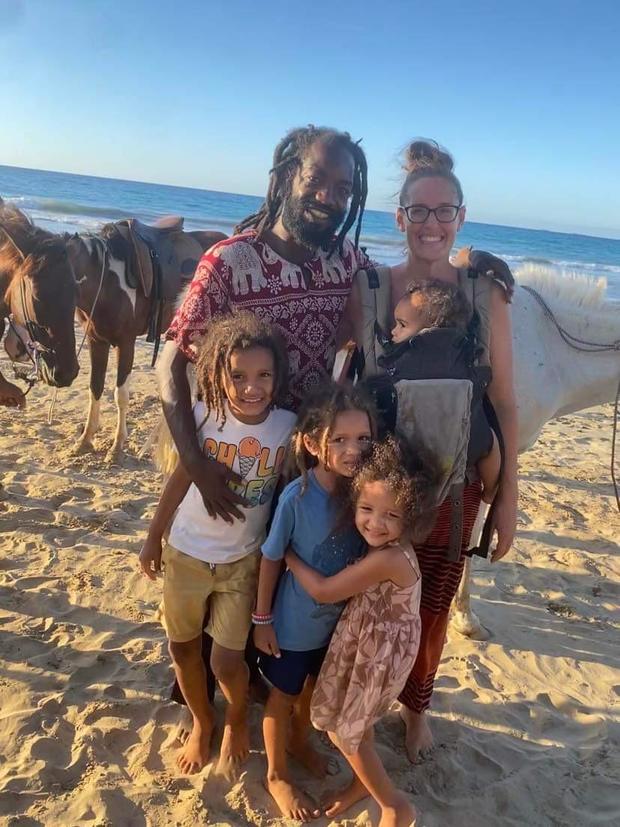
But she didn't see how to make a change — she still loved to teach, and wanted to work. They decided to become "world-schoolers," in which families travel for brief periods, while others open schools and remain on the road for months - or years - at a time to educate their children.
The couple didn't see themselves homeschooling, as "we wanted our kids to be around other kids." Solomon, a poet and spoken-word artist who grew up cycling in and out of foster homes and the risk taker of the two, suggested opening a school in another country.
But Amanda couldn't see a way to move abroad, open a school and travel with their children. "It seemed impossible," she says, and contrary to the way she was raised: "You go to college, you get a good job and you get your pension, you stay there."
The couple started researching and saw on social media there were many other frustrated families moving out of the United States, the United Kingdom and Canada to start their own educational adventures. The couple thought, "People are doing this. How can we do what they are doing, but in our own way?"
What world schooling is – and what it isn't
A growing traveling community that schools their children on the road, known loosely as "world-schoolers," devotees can be defined in many different ways. While the number of families on the road is not fully known, one of the main Facebook groups devoted to the practice has more than 62,000 members.
But the main theme is the desire for a community of travelers, a similar approach to education and lifestyle and a desire for a feeling of living in a place, rather than just traveling through. World-schoolers fund their travel with a mixture of remote work, including online teaching, real estate and trading stocks. Living and health costs in many other countries tend to be significantly lower.
The global pandemic has helped jumpstart U.S. families' interest in homeschooling as numbers rose 30% from 2019 to 2022 — but even as the world has slowly shifted back to in-person learning the interest hasn't waned. Homeschoolers have doubled since 2019 and the numbers are holding steady as parents are "increasingly interested in non-traditional learning options for their children," according to an analysis from the libertarian Reason Foundation.
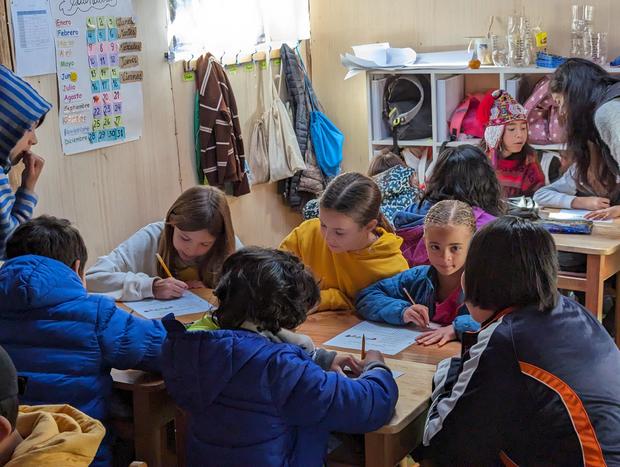
Families traveling provide a mix of educational opportunities for their children. Many U.S. and U.K. families register their children in their state's homeschooling program. Then it is up to those families how they are going to educate their children. Some mix their year between learning at home and abroad. Others travel for indefinite periods and hew to the idea of unschooling. Others travel and enroll their children in formalized online programs while traveling.
Los Angeles-based family therapist Terra Horton traveled for about a year with her husband and their three children, then ages 14, 9 and 6. Since she knew the family would return to Los Angeles after the trip, she enrolled her children in a home-schooling charter school and while they were traveling all the children participated in an online schooling program called "Time4learning."
Horton said the children studied at their own pace as the family traveled. Two years have passed since they've returned home and school. Horton said at first the kids "were a bit behind but they quickly caught up." She said the family often speaks about their time on the road and it was one of the best "life experiences they've ever had."
How do world-schoolers travel around the world with their families?
In the past three years, about a dozen collectives known as "world schooling hubs" have popped up around the globe. Some programs are run loosely by parents. Others are more ad-hoc and form on the fly when enough people gather in a location or region. Costs to attend a more informal "hub" can run from $250 a month to $900 a month, not including living costs or airfare. In Egypt, world-schoolers can pay $600-700 a month to rent a three-bedroom home with a pool and meals can run just under $10 a day. More formalized hubs can run thousands of dollars, but tend to include all associated costs.
There are hubs in Egypt, Spain, Thailand, Morocco, French Polynesia, Peru, Colombia, Portugal and Bulgaria. These hubs mostly run short, 4- to 6-week sessions families attend together. Usually, children have structured educational activities for a few hours a day, giving parents needed time to work remotely. In the afternoons and evenings, the hubs run activities for the whole family, and on weekends hold planned excursions. Some hubs also have events just for adults, and many work to form a sense of community for attendees.
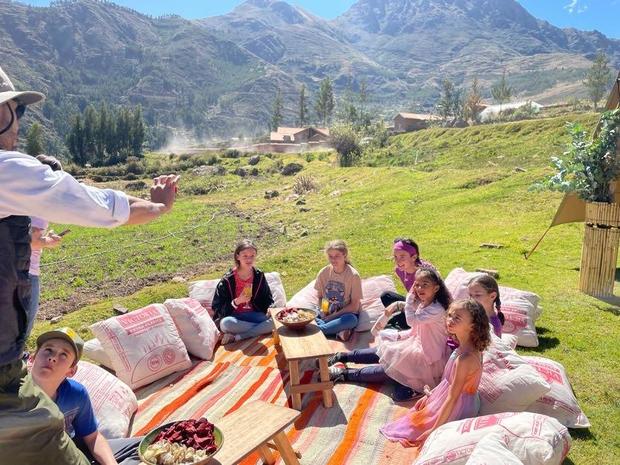
Because these programs are typically one -to three-month educational enrichment experiences, many families can travel to the countries on tourist visas. While each country has its own visa rules and regulations, some countries, including the Dominican Republic and Egypt, have overstay fees that travelers can pay on their way out. Other countries allow travelers to extend their stay if they register once they are there.
What children and families can get out of heading abroad
Louise Marie Morris started the One Family Luxor Worldschool Learning Hub after moving to Egypt from Portugal in 2021 with her two young children. Morris had worked at the BBC in London but after having her second child, she knew she wanted something different for their lives.
When she arrived in Egypt, Morris saw opportunity. She wanted visiting families to explore local temples and tombs including "King Tut's tomb" and also be able to play football with the local kids.
Morris launched the hub in the garden of a local hotel with 10 families. "We had no idea what we were doing." Now, Morris has built a classroom and garden facility and her hub attracts about 25 families per six-week session, and children and parents have built an Egyptian-style oven at an old farm, visited the Valley of Kings and taken a cruise down the Nile. Families join local sports clubs and rent houses from local families, and since they stay for a while, they get a real feel for the rhythms of Egyptian life.
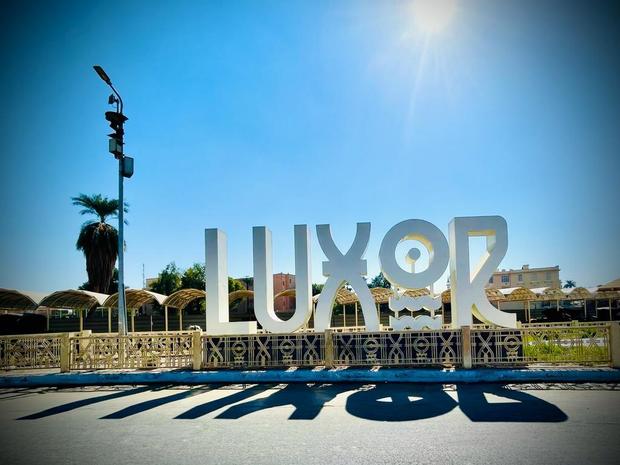
"We have people coming and going from many different socio-economic backgrounds and everyone is thrown into this new environment," Morris said — not easy, because many families coming from the West will experience real culture shock. But from these interactions "comes the most valuable moments," she said.
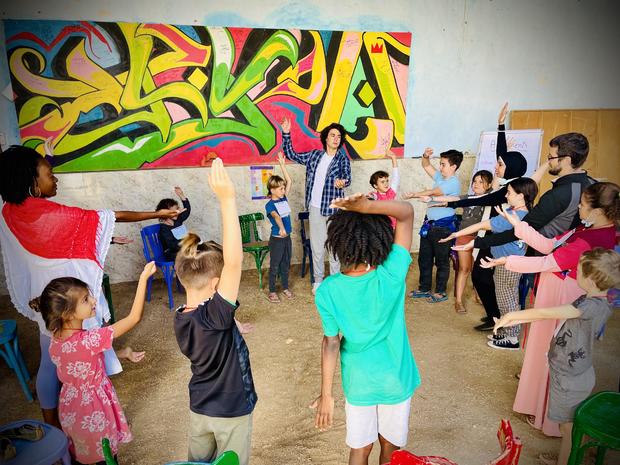
Companies have launched to provide a structured version of world schooling. In August 2020, Sam Keller moved to the island of Mo'orea in French Polynesia with his wife and two children for a year. Keller said they saw the positive effect living on the island had on their kids and family, allowing them to slow down and spend quality time together. "It was so profound for us," Keller said.
Shortly afterward, Keller launched "Working without Borders," a California-based travel company that creates monthlong educational experiences for families. Programs have run in Mo'orea, Colombia and Peru.
Jamie Neilans, 46, from Honeoye Falls, New York, traveled with the company to Peru with her 12-year-old son Jace during his summer break because she wanted him to experience living abroad– and she wanted to do it with him. When she was younger Neilans lived in Mexico for six months which "changed her life."
The single mom wanted her son to have a similar experience to understand "the important things in life" which, to her, aren't "a big, beautiful house or expensive car." She says she wanted her son to learn, "you don't need all this, you can be happy with the people that you're with and who you are."
An independent medical biller with her own business, Neilans saved money for months to go on the adventure. Their shared month experience in Peru, Neilans says, helped them bond further.
On the last night of their month in Peru, Neilans said that the local school had a gratitude ceremony for the visiting students, and she was crying watching. She thought the experience taught her son there's "another way to look at life and the way things can be."
What can world schooling look like?
In September 2020, the Dixons moved to the Dominican Republic to launch their own school, "Forever Wild Children's Garden." The couple used their savings to open a food truck to fund their life until their school grew. Three years and another child later, the couple has decided to close their Dominican Republic location and are getting ready to embark on a traveling school with 12 other families throughout South Asia. The families will travel and learn together in six different locations in four countries, including Kuala Lumpur, Chiang Mai and Bali.
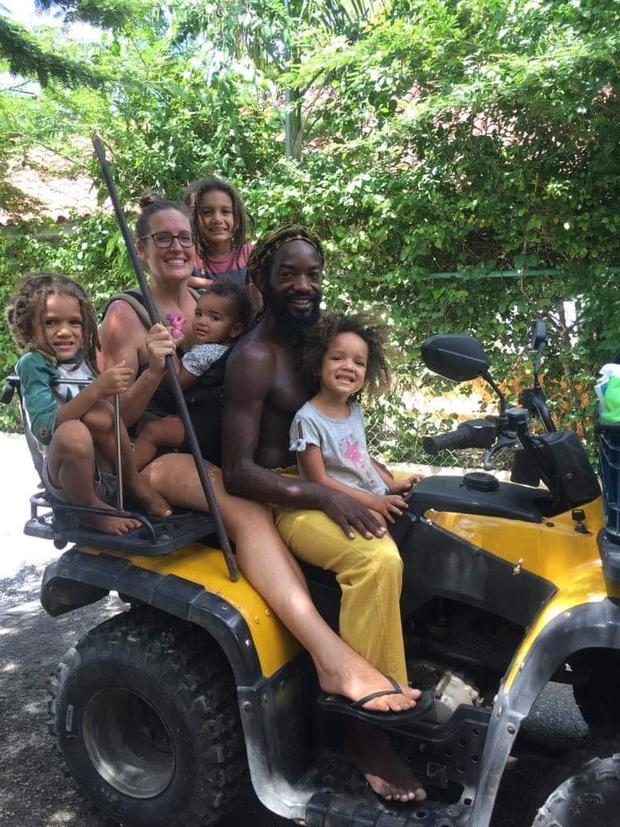
Months of interviews whittled down the final families joining the Dixons and their four children. They will be stopping for a month in each location for structured programming and then there will be a specialty camp.
Families have two weeks on their own to travel before they move to the next location. The family plans to be on the road for 10 months before settling down in a new location where they will open another hub for three years. They plan on living like this as "long as possible."
"22 years ago, when I was in college, there was no such thing as world schooling," Amanda said. "I thought I was going to be in one place forever." She said that it is impossible to know what the next 20 years will bring.
The important thing, the couple said, is the ability to pivot to whatever comes next. The one tool they can bring with them, Solomon said, is "our spirit and our desire to educate children and our unique way of doing it."
- In:
- Travel
- Education
Cara Tabachnick is a news editor for CBSNews.com. Contact her at cara.tabachnick@cbsinteractive.com
Disclaimer: The copyright of this article belongs to the original author. Reposting this article is solely for the purpose of information dissemination and does not constitute any investment advice. If there is any infringement, please contact us immediately. We will make corrections or deletions as necessary. Thank you.
Title:The community of traveling families using the globe as their classroom is growing. Welcome to the "world school" revolution.
Url:https://www.investsfocus.com

